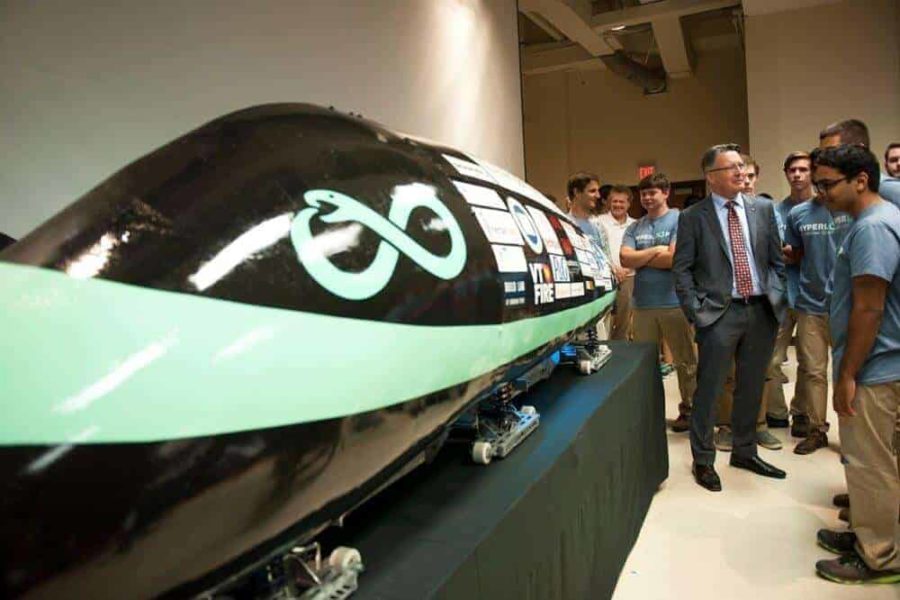Virginia Tech’s Hyperloop team won’t have to travel far to test the pod that it unveiled at a campus event this week.
Before the on-campus presentation began, Stefan Duma, interim director of the Institute for Critical Technology and Applied Science at Virginia Tech, announced that the university would build a test track on the Blacksburg campus, the first of its kind on the East Coast.
Hyperloop is a high-speed transportation system using a passenger-carrying pod in a near-vacuum tube that is envisioned to reach speeds in excess of 700 mph. The brainchild of Tesla founder Elon Musk, Hyperloop took a step closer to reality in 2016 when more than 120 teams participated in an international design competition at Texas A&M University. The Virginia Tech team placed fourth and received an invitation to build its pod and test it at a 1-mile testing track at SpaceX in Hawthorne, California.
Duma said the Office of the Executive Vice President and Provost, the College of Engineering, and the institute would partner to fund the test track’s construction, which will be located in the Plantation Road research facility. The initiative is part of the university’s broader effort to emphasize intelligent infrastructure through a series of learning opportunities for students and occasions for the university to collaborate with industry partners.
“With the hands-on experience this test track will provide, our students will make technological breakthroughs the world has never seen before,” said Duma, the Harry Wyatt Professor of Engineering. “It’s a physical manifestation of the university’s commitment to creating intelligent infrastructure for the 21st century, and it will give Virginia Tech students the tools to solve complex global problems.”
Duma further credited the team of 33 undergraduate students for combining deep knowledge in a discipline with crosscutting skills in communications and project management.
While details of the track design, length, and timeline for completion have yet to be determined, Duma and G. Don Taylor, interim dean of the College of Engineering, have said they see the track as a positive development not only for Virginia Tech, but also for Southwest Virginia.
“With the provost’s office and ICTAS, the College of Engineering is excited to enhance the university’s intelligent infrastructure plan in providing our Hyperloop student team with the resources to be successful on a global stage,” said Taylor, who is also the Charles O. Gordon Professor of Engineering. “Through purpose-driven education, applied research capabilities, and world-class facilities, our students are poised to impact the future of transportation.”

